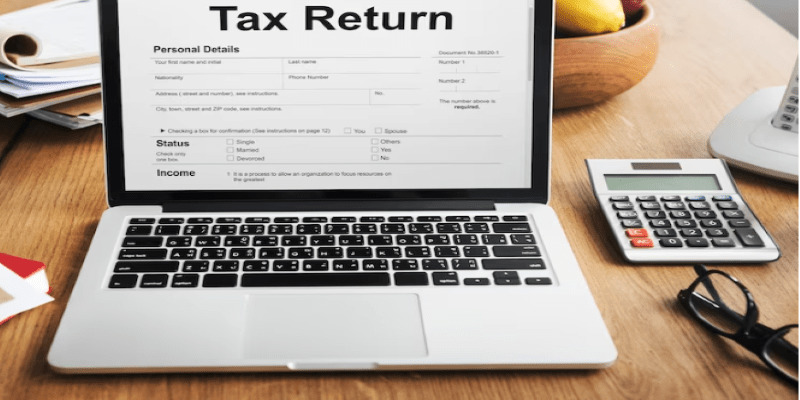2023 Tax Return Guide: 8 Simple Steps for Hassle-Free Filing
Triston Martin
Oct 02, 2023
Tax season may not be the most exciting time of the year, but it's a necessary task for all of us. Filing your 2023 tax return doesn't have to be a headache, though. With some preparation and organization, you can breeze through the process and maybe even look forward to that refund check.
In this article, we'll break down tax preparation into eight simplified tips to help you get ready for filing your 2023 tax return.
8 of the Best Tips to Consider When Filing a Tax Return
Filing a tax return might not be the most exciting task on your to-do list, but it's essential. Whether you're a seasoned taxpayer or filing for the first time, several crucial tips can make the process smoother and more rewarding.
Gather Your Documents
Before diving into the tax filing process, you must have all the necessary documents in one place. This includes your W-2 forms from your employer, 1099 forms for any freelance work or investments, and any other income-related documents.
If you have made significant financial moves, such as buying a house or contributing to a retirement account, have those documents handy. By having everything in order, you'll avoid the stress of hunting for missing documents at the last minute.
Stay Organized Throughout the Year
Keeping your financial records organized throughout the year can make the tax preparation process much smoother. Use spreadsheets or financial software to track your income, expenses, and deductions. This way, when tax season rolls around, you won't be scrambling to remember how much you spent on business expenses or charitable donations.
Use Tax Preparation Software

Gone are the days of manual calculations and paper forms. Tax preparation software makes filing your taxes a breeze. Many popular options, like TurboTax or H&R Block, guide you through the process step by step, ensuring you don't miss any deductions or credits. These programs are user-friendly and often offer e-filing, which means you can get your refund faster.
Don't Procrastinate
One of the most common mistakes people make is waiting until the last minute to file their taxes. Avoid the stress and potential late fees by starting early. Mark the tax deadline (usually April 15th) on your calendar and set a personal deadline a few weeks earlier. This buffer will give you time to address any unexpected issues.
Explore Deductions and Credits
Maximizing deductions and tax credits can significantly reduce your tax liability or increase your refund. Take the time to explore potential deductions, such as student loan interest, medical expenses, or energy-efficient home improvements. Additionally, check for tax credits you might qualify for, such as the Earned Income Tax Credit (EITC) or the Child Tax Credit.
Consider Professional Help
If your financial situation is particularly complex, or if you're unsure about certain tax rules, it may be worthwhile to seek professional help. Enlisting the services of a certified tax preparer or accountant can ensure that you're taking advantage of all available deductions and credits while staying in compliance with tax laws.
File Electronically
Filing your taxes electronically is convenient and more secure than mailing paper forms. It reduces the risk of errors and ensures that your return is received promptly by the IRS. Plus, if you're expecting a refund, you'll get it faster when you choose e-filing. Many tax preparation software options offer electronic filing as part of their service.
Double-Check Your Return
Before hitting that "submit" button, take a moment to review your tax return carefully. Check for accuracy in your personal information, such as your Social Security number and address. Verify that all your income, deductions, and credits are correctly entered. A small mistake can lead to delays or even an audit, so it's essential to be thorough.
Common Tax Mistakes to Avoid
As you gear up to file your 2023 tax return, it's equally important to be aware of common mistakes that can lead to issues with the IRS or missed opportunities for deductions and credits. Here are some pitfalls to steer clear of:
Failing to Report All Income
One of the most significant errors people make is underreporting income. It's essential to report all your sources of income, including freelance work, rental income, and side gigs. The IRS receives copies of various income-related forms, such as 1099s, so any discrepancies can trigger an audit. Ensure you have documentation for all your income sources.
Ignoring New Tax Laws
Tax laws are subject to change, and staying informed about the latest updates is crucial. Tax codes evolve, and what was deductible or credited in previous years may no longer be true. Take the time to research and understand any new tax laws or changes that may affect your filing.
Mixing Personal and Business Expenses
If you're self-employed or a small business owner, keeping your personal and business expenses separate is essential. Mixing these expenses can raise red flags with the IRS and complicate your tax return. Maintain separate bank accounts and meticulously track all business-related expenses to maximize deductions while staying within the law.
Forgetting to Sign and Date

It may seem minor, but forgetting to sign and date your tax return can lead to processing delays. Double-check that you've signed in the appropriate places and included the current date before submitting your return.
Conclusion
Preparing and filing your 2023 tax return doesn't have to be a daunting task. By following these eight simplified tips, you can streamline the process, reduce the chance of errors, and potentially increase your refund.
Remember to stay organized, use tax preparation software, and explore all available deductions and credits. So, don't wait until the last minute; prepare for your 2023 tax return today!







